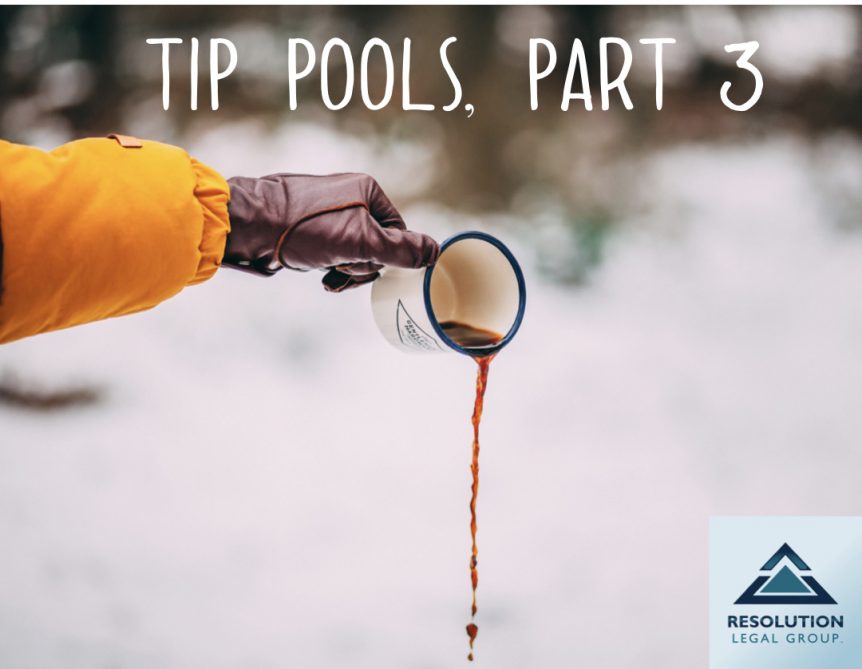At the conclusion of Part 2, we anticipated discussing “credits” and the minimum wage requirements. However, significant regulations impacting employers have been passed.
On March 23, 2018, the President signed the Consolidated Appropriations Act which effectively removed the 2011 Department of Labor amendment restricting an employer’s ability to require a tip pool, an amendment which the 10th Circuit denied and stated the DOL did not have authority to promulgate. The new language states: “An employer may not keep tips received by its employees for any purposes, including allowing managers or supervisors to keep any portion of employees’ tips, regardless of whether or not the employer takes a tip credit.” In effect, the act removes the prohibition but adds a restriction, “employers may not keep employees’ tips.”
Because the act did not provide any definitions, significant confusion quickly arose. To clarify, the Department of Labor released Field Assistance Bulletin No. 2018-3. The DOL explains that the reason managers and supervisors cannot participate in a tip pool is because this is viewed as the employer keeping the employees’ tips. The DOL also provides guidance as to how it will determine if an employee is a manager or supervisor. The DOL will be applying the “duties test” which considers 1. the employees primary duties, 2. if the employee directs the work of two or more employees, and 3. if the employee has the authority to hire, fire, or make recommendations to hire, fire, promote, etc.
Finally, and most importantly, the bulletin provides much needed guidance as to tip pools when employees are paid minimum wage and no tip credit is taken. “[E]mployers who pay the full FLSA minimum wage are no longer prohibited from allowing employees who are not customarily and regularly tipped…to participate in tip pools.” Thus, employers that pay over minimum wage and do not take the tip credit are permitted to require a tip pool but may not include supervisors.
What does the new regulation mean for me as a local business?
First, that means you need to look at the duties, responsibilities, and authority your supervisors have. Is your restaurant’s shift supervisor doing more work as a waiter or as a supervisor? Is your shift supervisor attending interviews and helping make hiring decisions? Does your shift supervisor have the authority to fire someone caught stealing during their shift?
Second, you may need to look at paying your supervisor more to make up for the loss of tips. Or you may need to change the responsibilities or authority an employee has.
Finally, you need to speak with counsel about what he or she recommends under the circumstances. When factors are considered by the courts or agencies, the best course of action is to have a heart-to-heart with an attorney. An added benefit is that bad news is always easier to give to a loyal employee if you do not have to be the “bad guy.”
For more information regarding tip pools contact Resolution Legal Group at 405-235-6500. We will gladly take one for the team.

